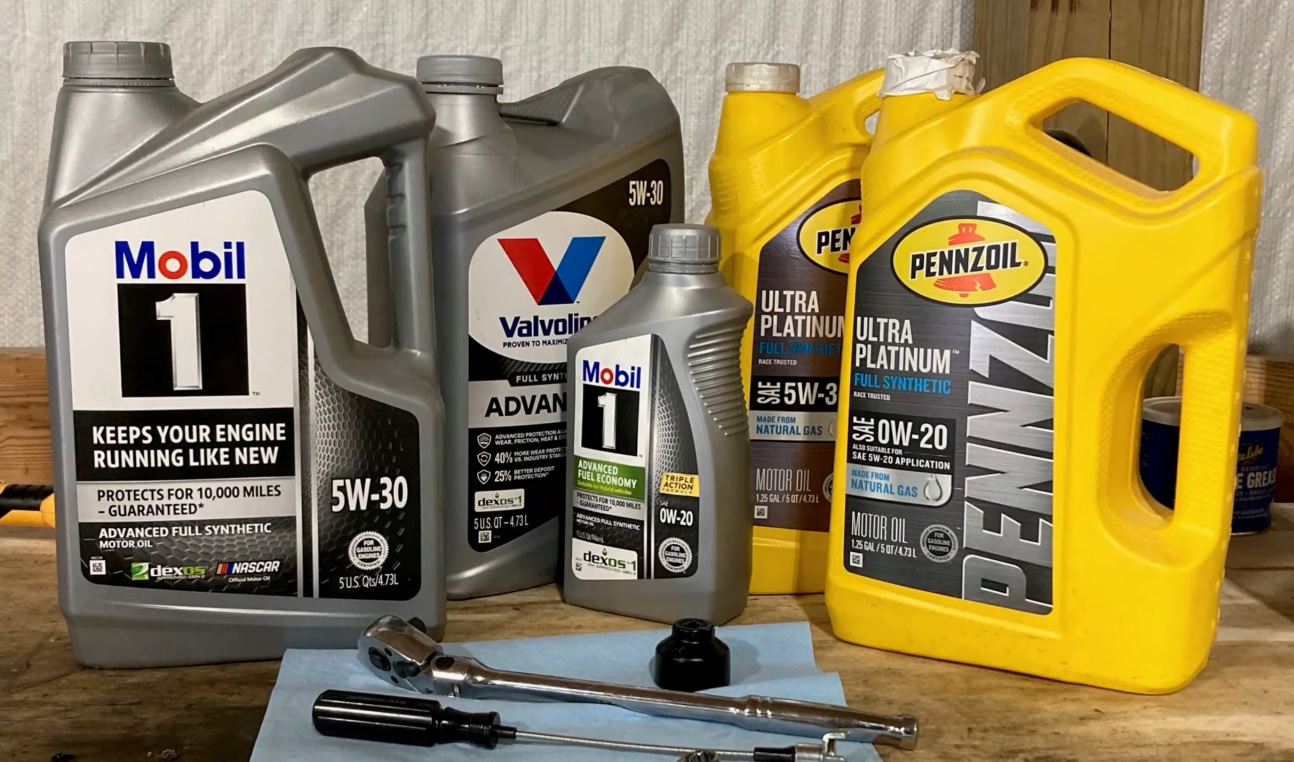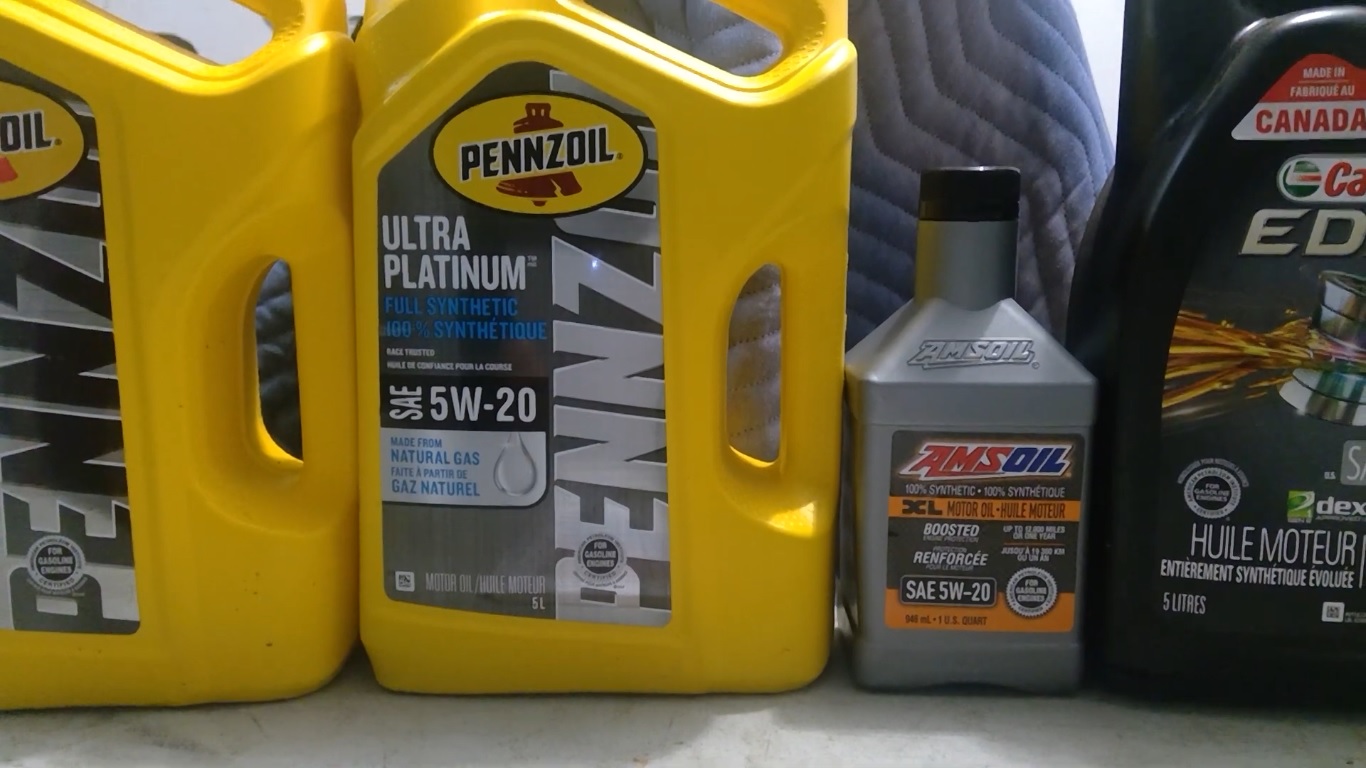
Whenever it’s time to choose the motor engine oil, I feel baffled by the cluttered market. There are so many options that make the picking decision mystifying. In this situation, the branding names of big players like Valvoline, Mobil 1, Castrol, etc.
Talking about Valvoline and Pennzoil, are well-known and trustable names in this industry. Both have a wide variety of quality oils and fluids. However, you can’t use both of them. So let’s compare these oil brands to find out which oil is better for your car engine.
In this comparison of Pennzoil vs Valvoline, you can discover their advantages and drawbacks that will help you to make a better decision.
Pennzoil VS Valvoline: Comparison Table
|
Valvoline |
Pennzoil |
|
Provides Better Engine Performance |
Provides engine protection |
|
Absorbs heat and friction |
Increase horsepower |
|
Seals the aging leaks |
Keeps pistons clean |
|
Covers high-mileage range |
Improves fuel economy |
|
Extends engine lifespan |
Peak performance in extreme weather |
|
Meets OEM specifications |
Available in a wide range of viscosities |
|
Less Pricey |
Costly oil change |
Who Makes Valvoline Oil?
Valvoline is an American oil and fluid manufacturer and distributor. The company has its manufacturing plant and Instant Oil Change Express across the country. It has raised its name in the industry through a wide variety of engine oils. These oils provide a high level of protection and prevent damage caused by Low-Speed Pre-Ignition (LSPI).
The brand has bravely served the industry for over 150 years. It is ranked 3 in the DIY market as the best passenger car oil. Valvoline is continuously innovating, creating, and reinventing formulas to provide the exact performance that you desire.
You will be glad to know that Valvoline has something for everyone from passenger cars to racing oils.
How is Valvoline oil Made?
Valvoline has a wide range of oil and lubricant products that are mostly refined from crude oil. After lifting oil from the ground, it is heated at extreme temperatures that prevent impurities.
However, Valvoline oil is far better than traditional crude oil bases. The brand processes the oil with advanced technologies to enhance performance. Valvoline uses premium quality mineral oils with the base oil and makes it suitable for modern engines that pack a heavier punch. They have developed an innovative formula that helps to resist major engine breakdowns and expand the engine’s lifespan.
Who Makes Pennzoil Oil?
Pennzoil is also an American motor oil brand that is a subsidiary of Shell oil company. The oil that is distributed throughout America is manufactured in North America.
The brand offers a wide range of automotive lubricants including transmission fluids, gear oils, and greases. These oils and fluids give the engine a newer life and boost its performance. Undoubtedly, it is a good oil brand that comes with many advanced technologies. Whenever it comes to money value, Pennzoil guarantees 100% satisfaction.
How is Pennzoil oil made?
Pennzoil is the only brand that formulated its lubricants from natural gas. This is the major difference from Valvoline. Pennzoil processes natural gas through its patented PurePlus Technology to create oil products like synthetic and conventional oils.
Pennzoil uses extremely high-quality base oil that makes it stand out from others. Typically, natural gas has fewer impurities that are commonly found in crude oil. As a result, the base oil is fully pure and clear. Thus, these oil ensure high performance for ultimate protection without any compromise.
Pennzoil VS Valvoline: What’s The Difference?

Both brands claim that their products are effective lubricants for cars, trucks, and other engines. I admit that these oil products contain excellent quality, still, you should find out which oil is suitable for the long run.
So let’s find out their effectiveness by comparing their key features.
-
Performance In Extreme Weather
Talking about Valvoline oil, provides the best performance whether it is extremely high or low temperature. The oil doesn’t burn or get sludgy and maintains its texture and effectiveness. Hence, it prevents the engine from overheating. The oil remains the same in freezing temperatures, resulting in quick start-up even in intense winters. So it is the major benefit of Valvoline.
On the other hand, Pennzoil oil also has the same benefit. It ensures equal performance in low and high performance. But comparing both of them, Pennzoil is the winner. Because it provides faster oil flow in intensely cold environments, even at -40ºF. Similarly, the oil eliminates oil oxidation and degradation in hotter temperatures up to +400ºF.
-
Increase Horsepower
Valvoline engine oil creates a thin layer that helps to run the engine safely. The oil has high-quality additives and friction-fighting agents that work as a safeguard between the critical engine components. While all the parts move smoothly, you will get instantly engine horsepower in your vehicle.
Pennzoil synthetic motor oils provide better friction protection. The top-notch additive absorbs the acting force from kinetic friction. Thus, it increases the horsepower of your vehicle.
Both oils don’t have any recorded horsepower as it depends on the engine model and its condition. But the oils will increase horsepower.
-
Fuel Economy
Typically, most car enthusiasts recommend changing the engine oil every 3000-4000 miles which is the most common practice.
Valvoline protects over 6,000 miles which is double the mileage range compared to regular synthetic oil. However, you shouldn’t drag too much. If you regularly drive many miles at a stretch, you should change the oil every 3000 miles.
Valvoline offers a standard mileage range that meets the ILSAC GF-6A fuel efficiency requirements and the API SP specification. This means you require less money to drive for the same duration.
On the contrary, Pennzoil oils help you to drive an extra 550 miles per year compared to typical engine oils. This oil reduces the production of CO2 which helps to improve fuel efficiency and increases the oil change intervals.
In this case, both oils are great for fuel economy. Their specialized high-mileage synthetic oils provide 75000 miles of protection that is equal. So whether you use Valvoline or Pennzoil, your high-mileage vehicle will run smoothly.
-
Engine Protection
Valvoline engine oils are treated with advanced technologies that not only boost power and fuel efficiency but also protect the engine from corrosion, heat, deposits, and friction. The advanced additive technology with a fortified blend of detergents prevents deposits and sludge that keep clean the inner surfaces of the engine.
Also, the premium seal conditioners of the oil help to restore older seals and prevent leaks and cracks. So, I will say, this oil offers 50% greater wear protection with advanced anti-wear additives.
Since Pennzoil oil is formulated from natural gas, it is cleaner than crude oil. So fewer impurities prevent slugs from clogging the moving parts of the engine. Moreover, the oil keeps the pistons clean and meets the industry-standard ILSAC GF-6. It also seals the older leaks which ensures a longer endurance.
So here Pennzoil provides better engine protection than Valvoline.
-
Engine Compatibility Level
Valvoline is a standard oil that is certified by many car manufacturers. The oil is available in multiple viscosity that meets the list of requirements. This means using Valvoline engine oil won’t revoke the car’s warranty. This wide engine compatibility level is the best benefit for you. Furthermore, it supports from the high-performing modern engine to newer and older diesel-power cars or utes.
Pennzoil engine oils come in a wide range of viscosities like 0W-20, 0W-30, 0W-40, 5W-30, 5W-40, etc. that are suitable for modern engines to light-duty diesel engines. Still, there is some limitation. You can’t use this oil in aviation engines or bikes. Also, older diesel engines with high mileage may find it challenging with it.
-
Cost Comparison
The pricing range of both oils is neck to neck. Still, Valvoline is slightly cheaper than Pennzoil. Valvoline oil change starts from $35 to $120 depending on the oil categories. On the other hand, Pennzoil oil change charges start from $40 to $179 so it is more expensive. However, the performance and hype are worth the price.
Which oil is better for your vehicle?
Pennzoil is a high-quality motor oil that can provide numerous benefits for your car. It can help to improve fuel economy, prevent engine deposits, and protect against wear and tear. Additionally, Pennzoil can also help to extend the life of your engine by reducing friction and heat.
Valvoline is a trusted name in the motor oil industry and has been around for over 150 years. The company produces high-quality motor oils that are designed to protect your engine and extend its life. Valvoline motor oils are available in a variety of formulations to suit different driving conditions and engine types.
After comparing these oils, it is clear that Pennzoil is a better engine oil than Valvoline. Natural base oil is the key feature that leads to better engine performance. Still, comparing the price range, Valvoline is the winner. Because it provides nearly the best performance at an affordable cost.
There is no definitive answer when it comes to getting the right oil as it depends on several factors, such as the make and model of your car, your driving habits, and the climate you live in.
However, you should always keep in mind the OEM specifications and manual recommendations before going for an oil change. You must go for the oil that meets all the requirements.
Conclusion
After reading this article, you should have a better understanding of the benefits of Pennzoil and Valvoline motor oils.
Pennzoil is a great option for those who are looking for an oil that will keep their engine clean and running smoothly. Valvoline is a great option for those who are looking for an oil that will protect their engine and extend its life.
Leave a Reply